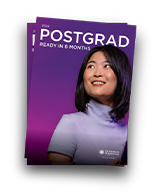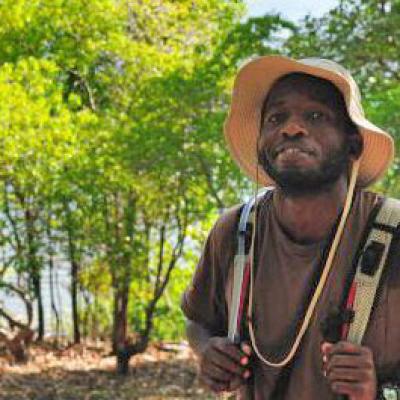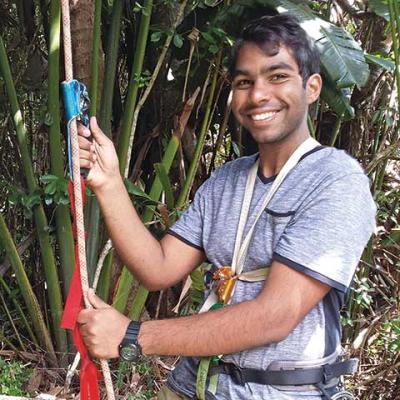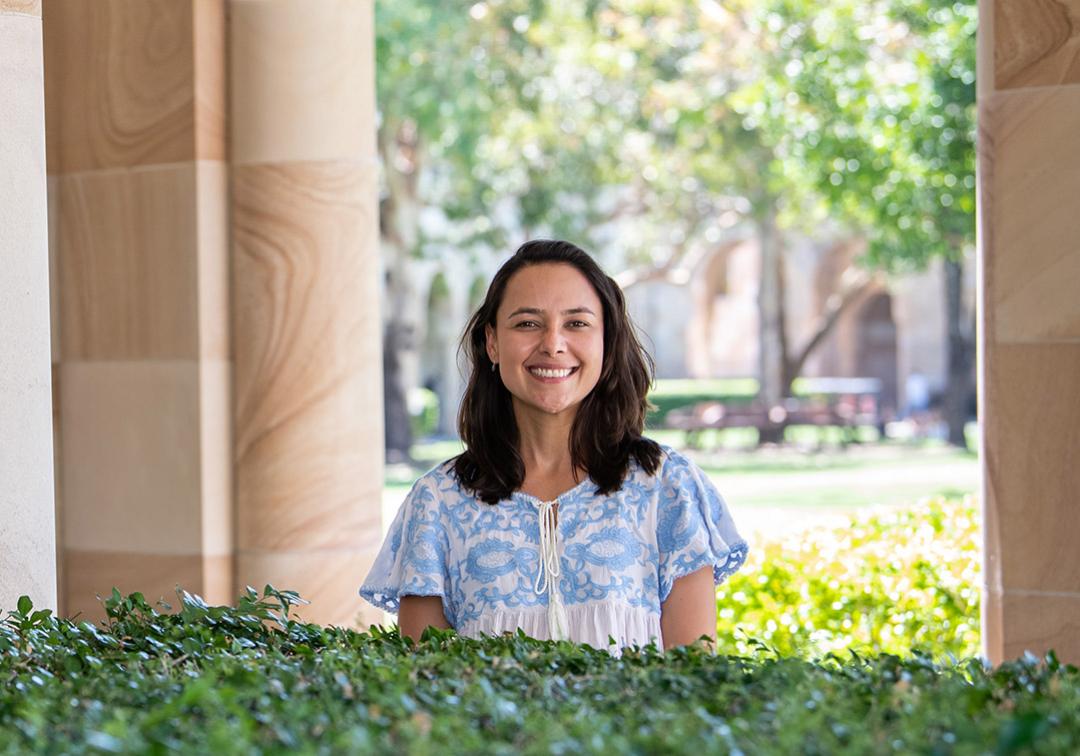
Master of Conservation Biology
Overview
Master the science of conservation, ecology and biodiversity to find effective solutions in securing the world's biological diversity.
The Master of Conservation Biology program will show you how to use science to support conservation strategies and policies. It integrates conservation, ecology and biodiversity – with a focus on the problems of restoring and maintaining viable populations of animal and plant species, and natural and managed ecosystems – so you can better confront complex conservation problems.
This program is taught by world-class experts, in an intensive mode that allows you to complete the equivalent of one and a half academic years in just 12 months.
You'll deepen your understanding of all aspects of biodiversity and conservation, environmental philosophy, national and international conservation policy, and systematic conservation decision-making processes. In addition to advanced-level coursework, you'll complete a variety of fieldwork teaching at unique sites, such as subtropical rainforests, national parks, and UQ’s Heron Island and Moreton Bay research stations.
Program highlights
- Study at UQ, the world’s leading university for biodiversity conservation research.
- Gain a comprehensive education in the ecosystems and evolutionary potential of the world’s flora and fauna.
- Complete field work at unique sites and research stations.
- Deepen your understanding of all aspects of biodiversity and conservation, environmental philosophy, national and international conservation policy.
How you'll learn
Your learning experiences are designed to best suit the learning outcomes of the courses you choose.
- Lectures
- Tutorials
- Research experience
- Laboratory work
- Fieldwork
What you'll study
At UQ, degrees are called 'programs' and subjects are called 'courses'. Here's a sample of the courses you could study in this program:
- Conservation in Context
- Conservation & Wildlife Biology
- Sampling Design and Analysis in Conservation Science
- Environmental Philosophy
Career possibilities
Postgraduate study can take you anywhere. Here are some of the careers you could be on your way to:
- Endangered species ecologist
- Biodiversity educator
- National parks and wildlife officer
- Natural resources manager
- Policy developer
- Agribusiness consultant
- Zoologist
- Bush regeneration consultant
- Ecotourism manager
- Environment and sustainability consultant
Graduate salary
Agriculture & environmental studies (postgraduate)
compared.edu.au
Events
See all events
1 May - 22 May
UQ's Sustainable Energy programs, Q&A webinars
Stories
See all stories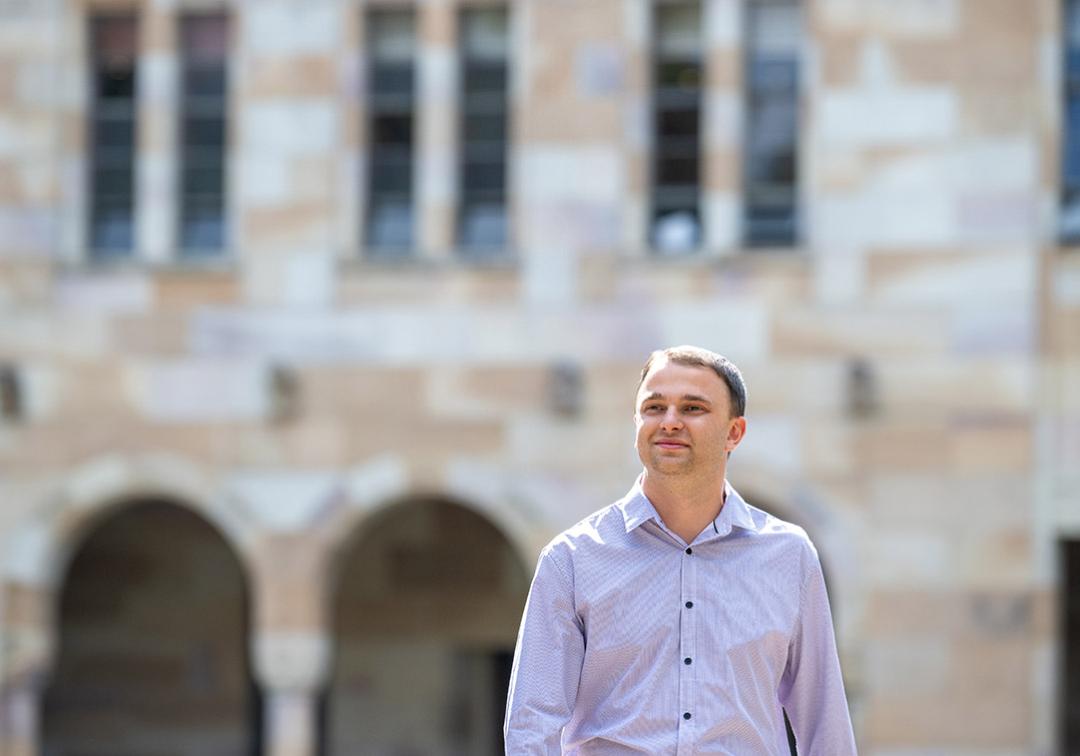
Uni life
What’s it like to study agriculture, environment and sustainability as a postgraduate?
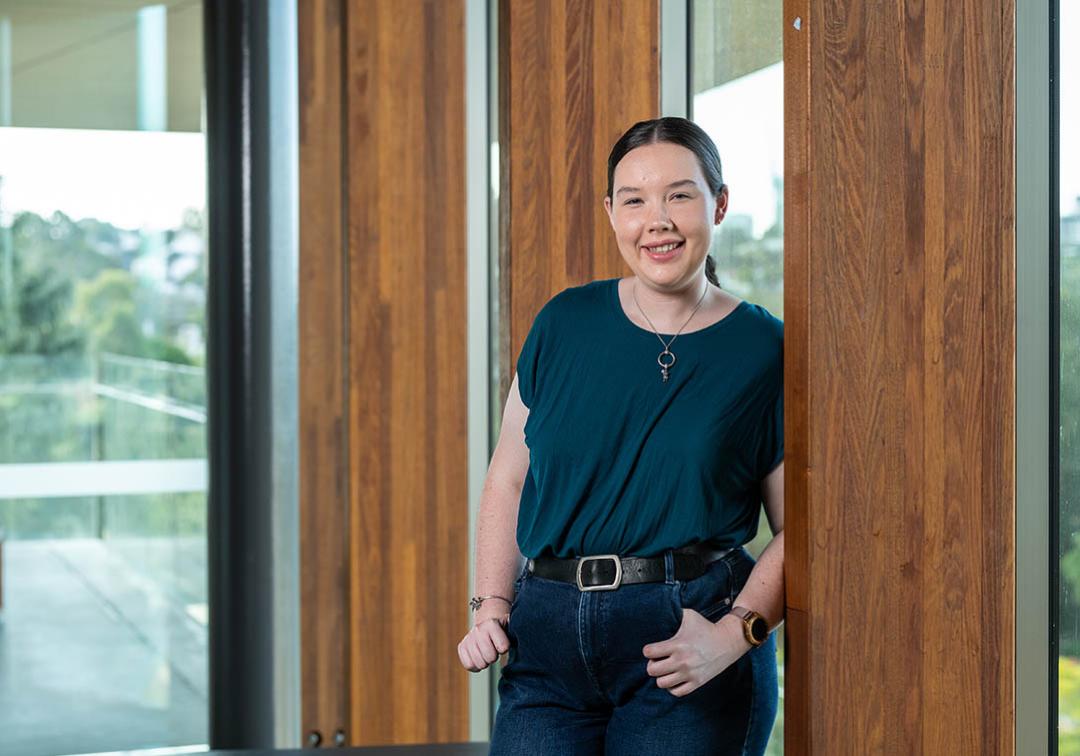
UQ people
Fighting fire with science: new tech to protect firefighters
Stories
See all stories
Uni life
What’s it like to study agriculture, environment and sustainability as a postgraduate?

UQ people
Fighting fire with science: new tech to protect firefighters
Entry requirements
Entry requirements
To be eligible for entry, you'll need:
- a bachelor's degree (or equivalent) in a relevant discipline (see below), or
- a graduate certificate in conservation biology.
- a bachelor's degree (or equivalent) in a relevant discipline (see below), or
- a graduate certificate in conservation biology.
Relevant disciplines for previous qualifications
Relevant disciplines include botany, conservation, ecology, environmental studies, evolution, mathematics or statistics, marine science, and zoology. Advice on other relevant disciplines is available from the Faculty by contacting enquire@science.uq.edu.au.
Related programs
Depending on your previous qualifications and current goals, you might want to consider
one of these related programs:
English language requirements
IELTS overall 6.5; reading 6; writing 6; speaking 6; listening 6. For other English Language Proficiency Tests and Scores approved for UQ
TOEFL iBT (including Paper Edition) - Overall 87, listening 19, reading 19, writing 21 and speaking 19.
PTE Academic - Overall Score of 64 and 60 in all sub bands.
BE - A minimum overall grade of 4 plus a minimum grade of C in all macro skills.
CES - Overall 176 and 169 in all sub bands.
OET is not accepted.
There are other ways to meet the English language requirements. For some programs, additional conditions apply.
Student visas
International students who are accepted into full-time study in the Master of Conservation Biology are eligible to apply for an Australian student visa (subclass 500).
There are a number of requirements you must satisfy before a visa is granted, including the Genuine Student (GS) requirement.
Fees and Scholarships
Indicative annual fee
Approximate yearly cost of full-time tuition (16 units). This program has a different study load so actual fees may be higher or lower. Check the courses and program structure for more details. Fees are reviewed each year and may increase.
$9,960
2024
$9,960
2024
Approximate yearly cost of full-time tuition (24 units). Your fees will vary according to your study load. Check the courses and program structure for more details. Fees are reviewed each year and may increase.
AUD $72,240
2024
AUD $72,240
2024
Additional costs
- This program includes one or more compulsory field trip courses that may incur additional costs. Please check the course descriptions for more information.
Government assistance
Financial aid
As an international student, you might be eligible for financial aid – either from your home country, or from the Australian Government.
HECS-HELP
Domestic places in the Master of Conservation Biology are Commonwealth Supported. This means the cost of your education is shared between you and the Australian Government.
Instead of tuition fees, Commonwealth Supported students pay what are called student contribution amounts.
HECS-HELP is an Australian Government loan scheme to assist eligible students with the cost of their student contribution amounts.
Centrelink support
The Australian Government has approved this master's program for income support payments to be made to eligible students.
Scholarships
You may be eligible for more than 100 scholarships, including:
How to apply
Applying online
All international applications should be submitted to UQ. If you prefer, you can use an approved UQ agent in your country.
The program code for the Master of Conservation Biology is 5551.
Find out more about applying for postgraduate coursework study
Applying online
All domestic applications should be submitted to UQ.
The program code for the Master of Conservation Biology is 5551.
Find out more about applying for postgraduate coursework study
Important dates
The closing date for this program is:
- To commence study in semester 2 - April 1 of the year of commencement.
To learn more about UQ dates, including semester start dates, view the Academic Calendar.
Important dates
The closing date for this program is:
- To commence study in semester 2 - April 1 of the year of commencement.
To learn more about UQ dates, including semester start dates, view the Academic Calendar.
Aboriginal and Torres Strait Islander applicants
For support with applying – or if you have any questions about university life – get in touch with our Aboriginal and Torres Strait Islander Studies Unit.
Explore other programs
Express yourself. And your interest.
They say choosing a degree is hard, which is why we've made it easy. Register your interest and we'll send you everything you need to know about applying to UQ.

